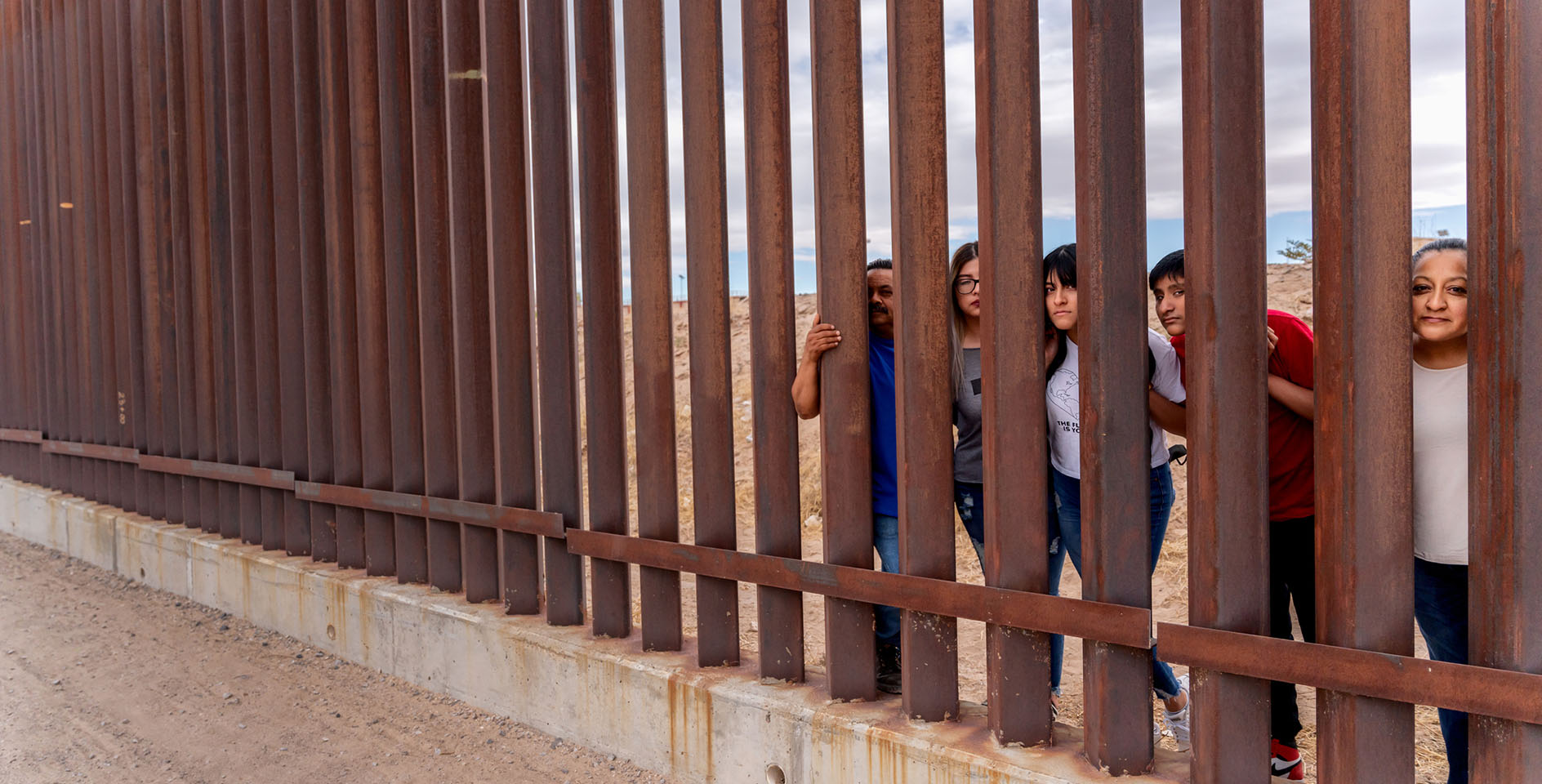In 2011, the federal government filed a human trafficking lawsuit in the largest case of alleged forced labor of farm workers in the United States. 200 men from Thailand had been brought to the United States legally through a worker visa, but were recruited under false pretenses. They were charged exorbitant recruitment fees by their employer and upon arrival had their passports and other documentation confiscated. The workers were not paid for the work and in many cases were constrained to the farm on which they worked. Their living conditions were inhumane, described as cramped, dirty and uninhabitable. At times they were physically abused, including incidents in which company officials slapped a worker in the head and threw a worker against a wall. Additionally, the men were threatened with deportation if they took any action to complain about their working conditions or to seek legal help. The company responsible was successfully found liable for abuse in 2014.
William Wilberforce, the British abolitionist, spent decades of his life fighting for the abolition of slavery, saying, ““Is it not the great end of religion, and, in particular, the glory of Christianity, to extinguish the malignant passions; to curb the violence, to control the appetites, and to smooth the asperities of man; to make us compassionate and kind, and forgiving one to another; to make us good husbands, good fathers, good friends; and to render us active and useful in the discharge of the relative social and civil duties?” Yet, slavery did not end with a re-writing of British laws but has morphed into a more sophisticated and hidden industry. The trafficking industry today is the fastest growing criminal industry in the United States, just behind drug trafficking. While in some cases, like the Thai laborers, the trafficking victims are identified and given protection, many victims of trafficking live in the shadows across many industries, and in many homes, in the United States.
Fighting human trafficking has been a sustained area of focus for many people of faith across the country for good reason. For Christians, the commitment to abolish slavery and human trafficking is driven by our conviction that all human beings are made in the image of God (Genesis 1:27). We believe fundamentally that every human being possesses inherent dignity and the right to freedom. The very sin that is talked about in the Bible (lust, greed, power, and selfishness among others) is what fuels the $32 billion trafficking industry, with half coming from industrialized countries.
In the United States, victims of trafficking come from a wide variety of backgrounds and a diverse pool of gender, racial, religious, and cultural identities, but there is an astonishing common denominator-a large portion of trafficking victims in the United States are immigrants. Thus, a conversation about ending human trafficking in the United States is incomplete without a conversation about immigration. A recent briefing paper released by the Faith Alliance Against Slavery and Trafficking (FAAST) found that 95% of labor trafficking victims in the United States are foreign-born. At least two-thirds of these victims are undocumented. In addition, at least 17% of sex trafficking victims in the United States are non-citizens.
God recognized immigrants as particularly vulnerable, along with widows and orphans, in the Old Testament because they didn’t have family or social structures to care for them. They often faced injustice and were prone to being taken advantage of. God exhorted the Israelites in Leviticus 19:33-34, “Do not oppress an alien; you yourselves know how it feels to be aliens, because you were aliens in Egypt.” In Isaiah 58: 6, the prophet was angry with the Israelites who exploited their workers and describes true fasting “to loose the chain of injustice and untie the cords of the yoke, to set the oppressed free and break every yoke.” As followers of Christ, we must seek the abolition of all slavery and promote freedom and justice not just in the darkest corners of the world but even as it happens in our own backyards.
Immigrants are particularly vulnerable to traffickers because they are a population marked by disproportionately lower socio-economic status, limited education, linguistic and cultural unfamiliarity, and fear of law enforcement. Traffickers prey on immigrants in the United States because many immigrants often speak limited English. Traffickers use an immigrant’s lack of legal status to exploit them, saying if they report the abuse to the authorities they will immediately get deported. Such fear often drives immigrants to work in deplorable working conditions, often getting unpaid and abused in the process. The dysfunction in our immigration system, which often makes it impossible to immigrate legally, effectively encourages unlawful behavior and is used as a tool for traffickers to prey upon the vulnerable. This is especially apparent with the increase in unaccompanied minors crossing our border.
Before 2012, the United States received less than 10,000 unaccompanied children per year, but there have been over 50,000 who have arrived in this past year alone. They come predominantly from the “northern triangle” countries of Honduras, El Salvador and Guatemala, which incidentally according to the 2014 Trafficking in Persons (TIP) report, are the top three countries from which trafficking victims in the United States come.
The stories of many of these young people are compelling. One Christian service agency focused on immigrant services compiled some of these young people’s stories as follows:
Jesús* is a 17 year old Guatemalan boy who came to the U.S. to escape a drug-trafficking gang who brutally murdered some of his family. When Jesus was 7 years old, his older sister and older brother were kidnapped. The family paid money to the kidnappers but the children were not released. Authorities eventually found the mutilated bodies of his siblings. The group that murdered the siblings started making threats to the rest of his family. Jesus and his younger sister started being intimidated in the community by people they believed to be part of a drug trafficking gang. These threats caused Jesus to decide to flee to the U.S. A child like Jesus might apply for a trafficking visa, special immigrant juvenile status visa, or asylum.
Dominic*, 15 year old boy, fled Guatemala’s gangs. In Dominic’s neighborhood, a gang tried to recruit him and pressure him into smoking marijuana. His friend told him one day that members of the gang were waiting in a nearby park to physically assault the minor. Dominic immediately made the choice to start his journey to the U.S. A child like Dominic might apply for asylum.
Maria*, a 12 year old girl from Central America was trafficked for labor and sex, she fled with her baby to escape slavery. Maria was 12 years old, when she was kidnapped at gunpoint and taken to a home where she was held captive. She was beaten and raped on an almost daily basis and eventually forced into prostitution. Because of this she became pregnant and gave birth to a girl while captive. Maria fled with her child, riding on top of trains so that they might escape the sexual bondage. Maria ended up qualifying for a T-visa and is currently doing well. She has now graduated high school.
Congress recognized the specific vulnerabilities of youth and included provisions in the William Wilberforce Trafficking Victims and Protection Reauthorization Act (TVPRA) of 2008 to transfer children to the custody of the Office of Refugee Resettlement (ORR) within 72 hours. This ensures that children who could be fleeing persecution or trafficking are able to present their case before an immigration judge, not a Customs and Border Protection (CBP) officer. A multi-faceted approach is needed that includes the best interest of the child in decision-making, inter-agency collaboration and an investment of resources in effectively addressing root causes of migration from Central America and Mexico.
But more must be done. A broken immigration system has become a trafficker’s best friend. As Congress dithers around immigration reform, opportunities for exploitation, abuse, and trafficking abound. Passing immigration reform is not just good for our economy and national security, but it’s the right thing to do to care for some of the most vulnerable people in our country — victims of trafficking, refugees, and immigrants — who live in constant fear that the protection of the law doesn’t extend to them.
The church also has a choice in its response towards immigrants in our country. The church is the most powerful agent of hope and restoration in our world today. As followers of Jesus, we have a mandate to care for the poor, the suffering, those who are abandoned, and those who are exploited. Awareness about the vulnerabilities of immigrants and human trafficking is needed, but Christians should also extend hospitality to immigrants who are living amongst us. Holistically responding to the needs of immigrants, including teaching English, helping navigate unfamiliar cities, and just offering basic friendship can make a world of difference. For those impacted by human trafficking, this can also include providing support and healing to victims, preventing situations of trafficking by reducing demand, and supporting and encouraging public policies that may reduce the prevalence of human trafficking and other contemporary versions of slavery.
Joseph, one of the heroes of faith in the Bible, was not only an immigrant but a victim of human trafficking. Sold into slavery by his brothers, he rose to be the second highest rank besides Pharaoh. His migration experience marked his walk with God and placed him in a position where he was eventually able to save the people of Israel from famine.
Scripture is clear that the movement of people are a part of God’s sovereign plan to draw people to Himself. Acts 17:26-27 says that “From one man [God] made every nation of men, that they should inhabit the whole earth; and he determined the times set for them and the exact places where they should live. God did this so that men would seek him and perhaps reach out for him and find him.” We have an opportunity to reach the nations for Christ without ever having to leave our neighborhood. But given the stark vulnerabilities of many immigrants, we also have an opportunity to speak out against injustice and ensure our government creates laws that ensure protection for the most vulnerable of our society, as William Wilberforce did.
Immigration may test the bounds of our hospitality and make us feel uncomfortable, but by seeing migration as a greater part of God’s mission in the world, the stranger can be a blessing (Hebrews 13:2) rather than someone to be feared.











